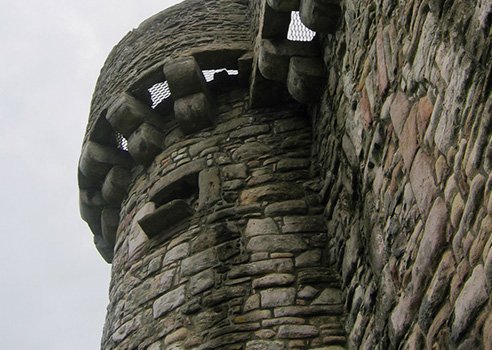Word count: 283 words
Reading time: Just over 1 minute
Increase your vocabulary and you’ll make your writing much more precise. That’s why I provide a word of the week. Today’s word: machicolated.
I can’t remember where I collected the word machicolated. I think it must have come from a reader because I can’t fathom where I would have found the following paragraph in which it’s used:
Blockhouses were a common type of defense structure used throughout colonial North America. The upper floor(s) would overhang the bottom one, thanks to their having different dimensions. This overhang would be machicolated so defenders inside the blockhouse could shoot down at attackers outside.
I hadn’t heard the word before and when I started looking up meanings, I briefly wished I had the academic training of my brother-in-law who is both an engineer and an architect. Why? Here’s a definition of the noun, machicolation (machicolated would be the verb): “An opening between the corbels of a projecting parapet or in the floor of a gallery or roof of a portal for discharging missiles upon assailants below.” And what’s a corbel? Let me save you the dictionary time: “A corbel (or console) is a piece of masonry jutting out of a wall to carry any superincumbent weight.” Oh, and superincumbent means something that lies or rests on something else.
Isn’t it remarkable how defining one word can lead you through the rabbit-hole of your dictionary and into a host of new definitions?
In any case, machicolated comes from Medieval Latin machicolare to furnish with machicolations, from Middle French machicoller. In turn, this comes from macher meaning to crush and col meaning neck. Perhaps the soldiers in the blockhouse had a hard time squeezing between the small openings between the corbels?
My apologies for the brief lesson in architecture!


